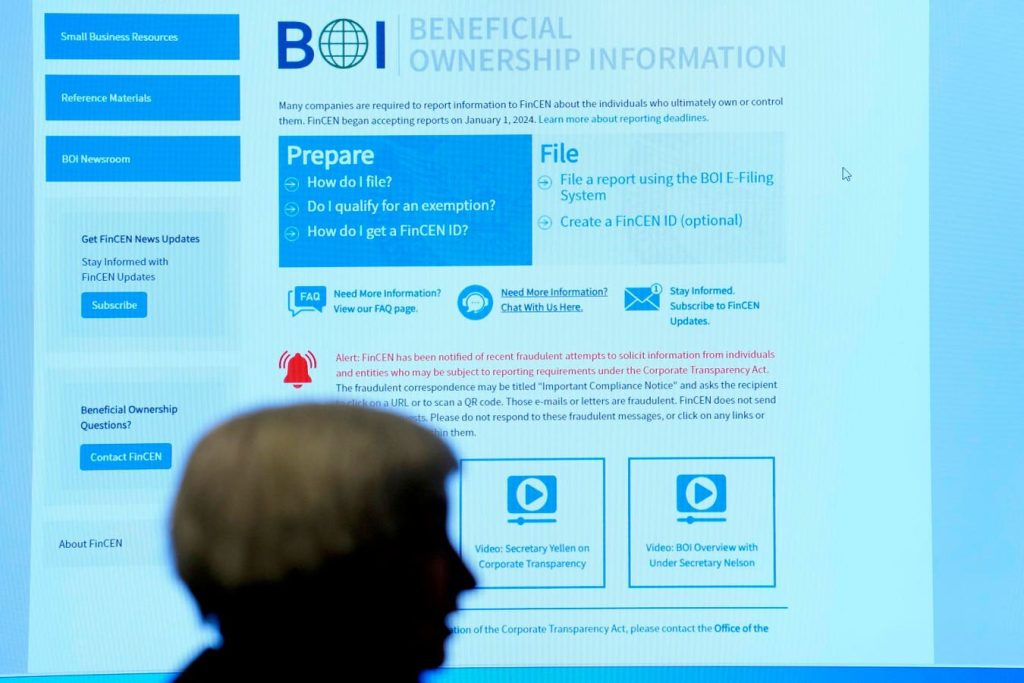The Corporate Transparency Act (CTA), enacted in 2021, mandates beneficial ownership information (BOI) reporting to the Financial Crimes Enforcement Network (FinCEN) for most business entities. This reporting requirement, intended to combat financial crime, has been subject to a series of legal challenges and court rulings, creating confusion and uncertainty for millions of American businesses. While the reporting process itself is relatively straightforward, akin to booking an international flight, the fluctuating enforcement status has made compliance a moving target. The core issue revolves around the constitutionality of the CTA under the Commerce Clause, with conflicting interpretations and rulings contributing to the ongoing legal battle.
The legal saga began with a nationwide preliminary injunction issued by a U.S. District Court in Texas on December 3, 2024, halting FinCEN’s enforcement of the CTA. The court argued that Congress overstepped its Commerce Clause authority in enacting the law. FinCEN responded by suspending the reporting requirement. However, this pause was short-lived. A motions panel of the U.S. Fifth Circuit Court of Appeals overturned the injunction on December 23, 2024, asserting that the CTA was indeed within Congress’s constitutional purview. FinCEN reinstated the reporting mandate, extending the deadline to January 13, 2025, to accommodate the temporary reprieve.
The legal rollercoaster took another turn just three days later when a different Fifth Circuit panel, the merits panel, vacated the motions panel’s decision and reinstated the preliminary injunction. This back-and-forth effectively suspended the BOI reporting requirement once again, leaving businesses in limbo. The rapid reversal by the merits panel, particularly given the limited scope of the appeal, raises questions about the court’s handling of the case. The central issue, the constitutionality of the CTA under the Commerce Clause, has clear precedent in existing Supreme Court rulings, which strongly support Congress’s authority in this area.
The merits panel’s decision not to swiftly resolve the appeal, instead choosing to reinstate the injunction, represents a procedural anomaly. Given the well-established legal precedent supporting the CTA, a prompt decision upholding the law would have been the expected course of action. This would have allowed opponents of the CTA to appeal directly to the Supreme Court, which would then decide whether to grant a preliminary injunction pending a full review. By delaying the resolution, the Fifth Circuit has created unnecessary confusion and potential hardship for millions of American businesses.
The Fifth Circuit’s actions are not only procedurally questionable but also potentially harmful. The on-again, off-again enforcement of the BOI reporting requirement has created uncertainty for businesses and potentially undermined the credibility of legal advisors who had encouraged compliance. Moreover, the delay could lead to a last-minute rush to comply if the Supreme Court ultimately upholds the CTA, creating a significant burden for businesses. The District Court’s initial decision to grant the preliminary injunction so close to the reporting deadline is also problematic, as it rewarded the plaintiffs’ intentional delay in challenging the law.
The current state of affairs, with BOI reporting effectively voluntary, highlights the dysfunction created by the Fifth Circuit’s handling of this case. The court’s delay in resolving a straightforward legal question based on established precedent has created significant uncertainty and potential hardship for millions of American businesses. FinCEN’s attempts to mitigate the impact by extending the reporting deadline have been rendered moot by the court’s actions. This entire episode underscores the importance of judicial efficiency and adherence to established legal principles to avoid unnecessary disruption and confusion.

